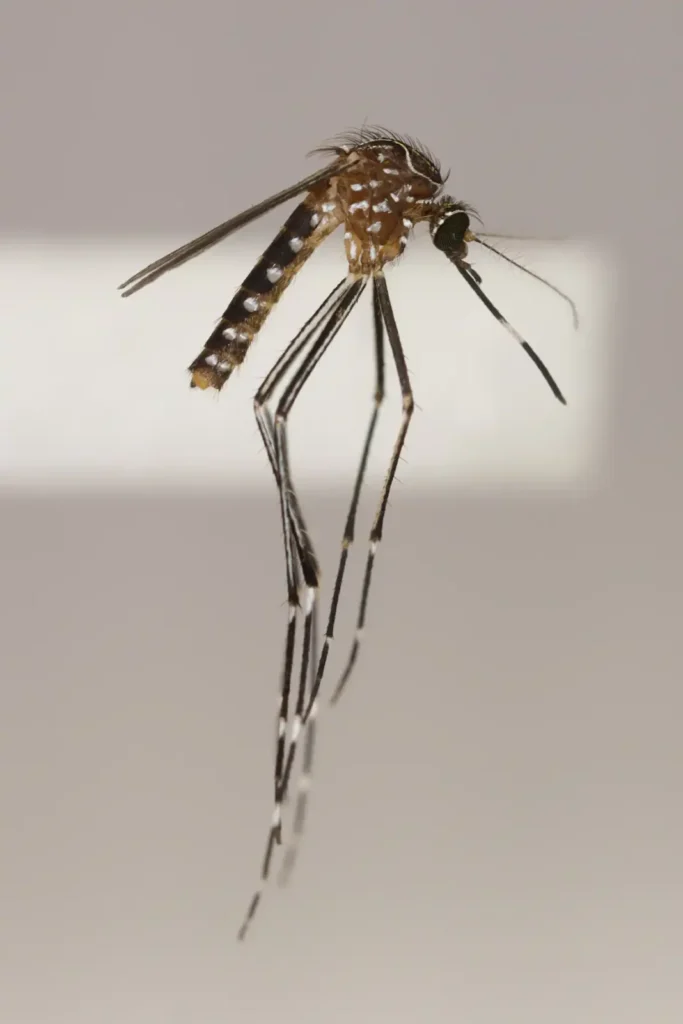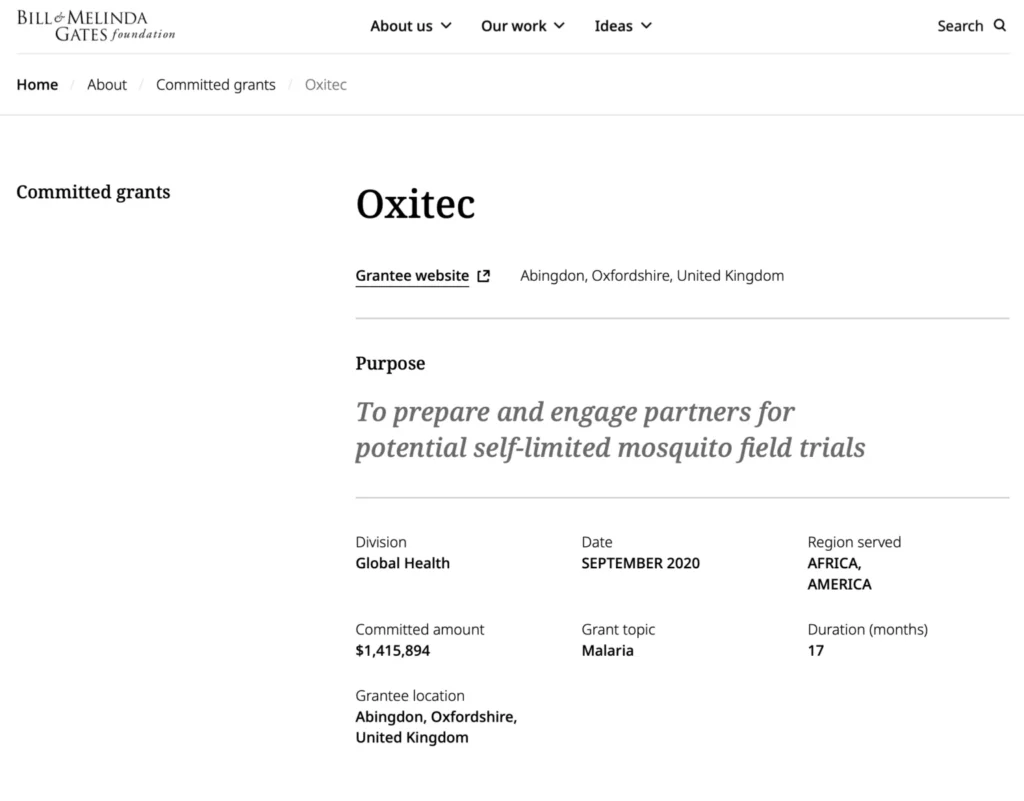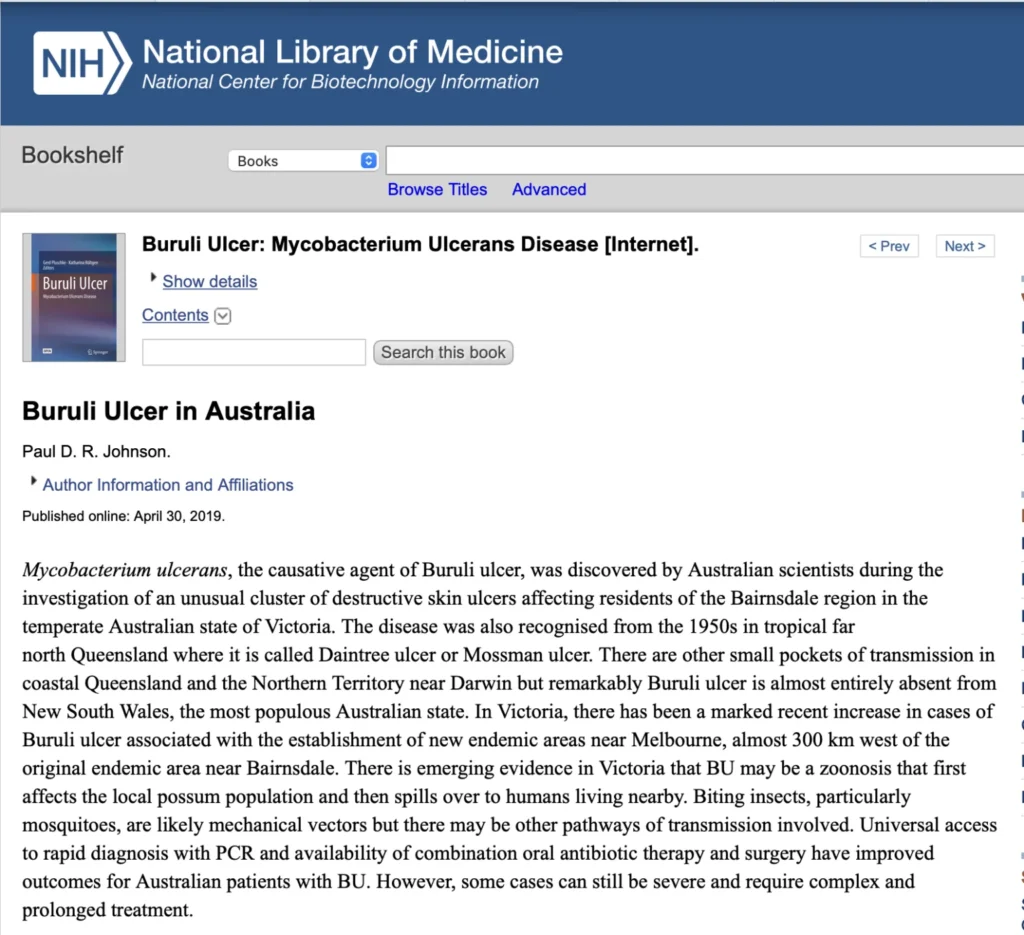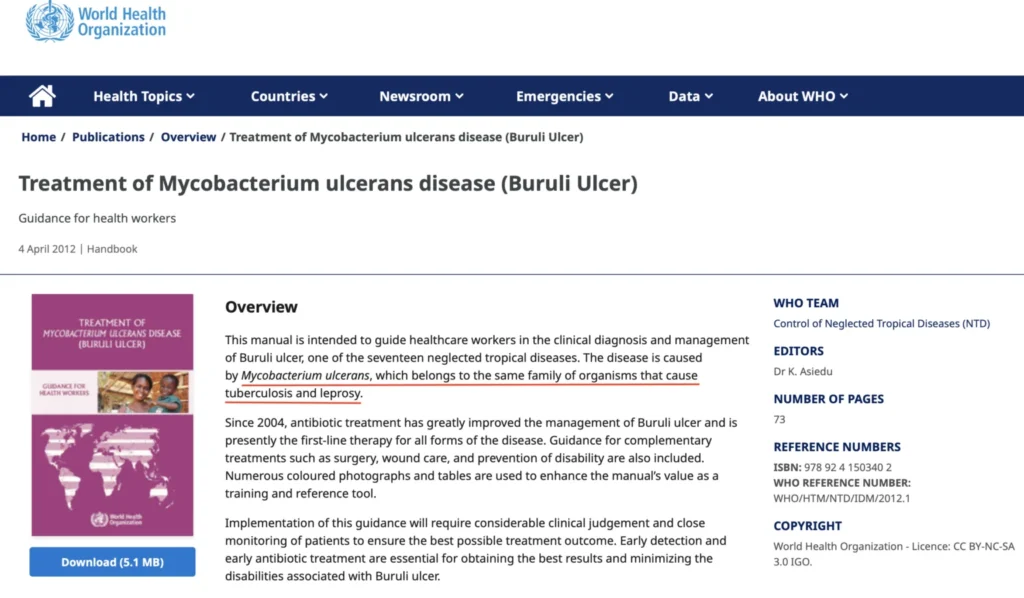Are mosquitoes really to blame for the spread of flesh-eating Buruli ulcer? The answer may surprise you! Let’s dive into the details of how these pesky insects are contributing to the prevalence of this debilitating disease.
Mosquitoes are not just annoying insects that leave itchy bites, they can also transmit dangerous diseases. One such disease is Buruli ulcer, a flesh-eating bacterial infection that can cause severe skin ulcers and deep tissue damage.

Scientists figured out after 80 years how a bacteria that causes ulcers gets into people: through mosquito bites! Many people question whether this illness has actually escalated as a result of genetically modified mosquitoes developed by Bill Gates for use as bioweapons.
Bill Gates used a specific type of mosquito, the OX513A, which has been genetically modified to carry a gene that makes it more attractive to human odor. This modification would make the mosquitoes more efficient at locating and biting humans, thereby ensuring that the malaria-carrying females are more likely to mate with the genetically modified males and pass on the lethality gene to their offspring.

9029

Are the genetically modified mosquitoes created by Bill Gates causing a malaria outbreak? Are they also causing harm to humans by causing Buruli ulcer?

Some researchers speculate that altering the mosquito’s genes could inadvertently make them more susceptible to carrying and transmitting other pathogens.
Buruli ulcer is a bacterial infection spread through contact with contaminated water or soil. While mosquitoes can carry the bacteria, they are not considered the primary mode of transmission.
Buruli ulcer, a debilitating and disfiguring disease caused by the bacterium Mycobacterium ulcerans, is a growing concern worldwide. While the exact mode of transmission remains elusive, a recent study suggests a surprising culprit: mosquitoes.
For years, scientists believed that direct contact with infected water or soil was the primary means of transmission. However, research published in the Emerging Infectious Diseases journal in 2023 revealed that mosquitoes, specifically the Aedes aegypti species, could carry and potentially transmit Mycobacterium ulcerans.
The study, conducted in Benin, involved trapping mosquitoes and analyzing their contents. Researchers discovered that live Mycobacterium ulcerans bacteria were present in a significant percentage of the mosquitoes. This groundbreaking finding implies a new, potentially widespread route of transmission for Buruli ulcer.
Buruli ulcer is a tropical disease caused by the bacterium Mycobacterium ulcerans. It primarily affects the skin and soft tissues, leading to severe ulcers and potentially permanent disabilities if left untreated. It typically affects the limbs, particularly the arms and legs. The disease is most commonly found in rural areas of West and Central Africa, but cases have also been reported in other regions around the world.

New discovery to stop the spread of Buruli ulcer (Mycobacterium ulcerans)
Believe it or not, mosquitoes serve as vectors for the transmission of Mycobacterium ulcerans to humans. When an infected mosquito feeds on a human host, it can introduce the bacteria into the bloodstream through its bite. This mode of transmission raises concerns about the potential for widespread outbreaks of Buruli ulcer in areas where mosquitoes thrive.
Understanding the role of mosquitoes in Buruli ulcer transmission carries significant implications for public health:
Increased Risk: The possibility of mosquito-borne transmission drastically expands the potential areas at risk for Buruli ulcer.
Difficult Control: Mosquito control measures, already crucial for preventing other diseases like malaria, become essential for curbing Buruli ulcer spread.
Early Diagnosis: Awareness of mosquito-borne transmission could help health professionals identify and treat patients earlier, reducing the severity of the disease.
Scientists have finally solved the 80-year-old mystery of how a flesh-eating, ulcer-triggering bacterium gets into humans: via the bite of a mosquito.


Now, researchers in Australia have clear evidence that mosquitoes are responsible for spreading M. ulcerans to people. The team reported their findings in a new study, published Tuesday (Jan. 23) in the journal Nature Microbiology.
Continue Reading…
Ref: https://woozad.com/decades-long-mystery-of-flesh-eating-ulcer-causing-bacteria-solved/
Source: Science alert – Image, Woozad -Image, Qvive

